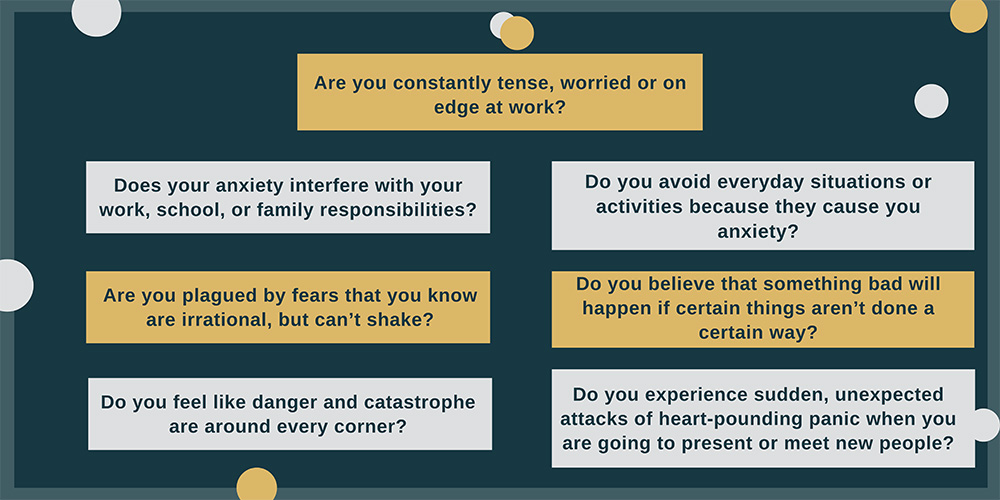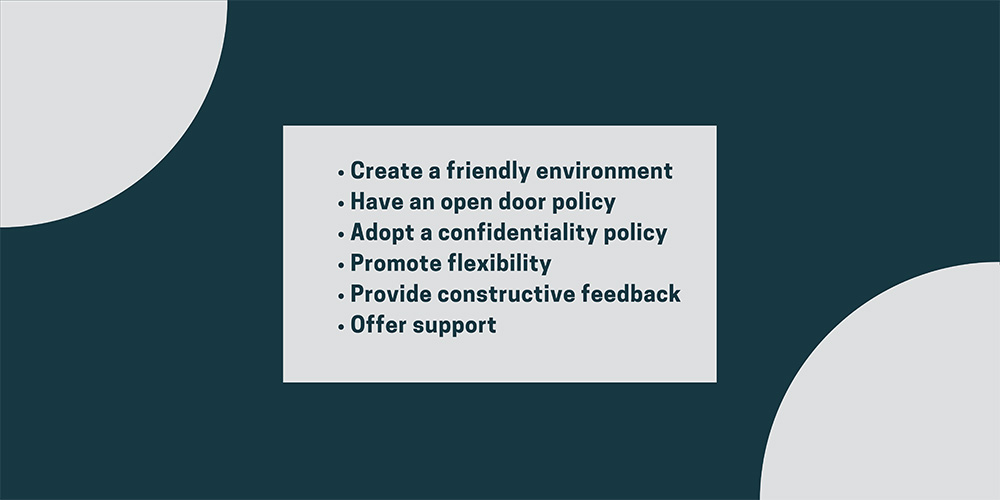Depression and other mental illnesses change the way you think about yourself and the way you see the world around you. Mental illness gives you irrational or false thoughts, and even though you might know this, that doesn’t stop them from coming.
– Natasha Tracy
We’re living in a world where depression is a common thing, and it ends up taking away our positivity. It tends to bring about the negative aspects of life and amplify sad emotions. It makes everyday things paralyzing and oppressive, and it smothers the sufferer’s emotional state. One thing to highlight is that depression doesn’t select individuals. Anyone can have it, either at work, at home, or at school… The focus of this blog is on depression at the workplace – how to recognize it and what to do when your employees show signs of depression.
While statistics in Africa are difficult to come by, let’s take a look at the situation in the US. According to the Bureau of Labor statistics, a staggering 8 in 10 full-time employees experience symptoms of depression while on the job. We can imagine that the situation isn’t all that different in Africa.
What are the symptoms of depression?
Certain symptoms that easily recognizable on a depressed person. They include struggling with time management, missing deadlines, eating disorders, withdrawing from their friends or colleagues, and so forth. But let’s dive a little deeper.
Depression is not always visible to people, and many face it silently. One wouldn’t necessarily even notice that an employee suffers from depression. In fact, depressed people may be very invested in their work by being glued to their phones or computers. Work becomes a coping mechanism people use to make their minds ignore or avoid painful issues that may be contributing to their depression.
People may find many possible ways to keep themselves busy while experiencing uncomfortable situations that they don’t want to face inside of them.
Additionally, people can start suffering from back pain or headaches. Also, some employees may either lose or gain a lot of weight. That’s because depression can lead to unhealthy eating habits, such as eating much or eating very little because of loss of appetite.
It is common for depressed employees to struggle finding motivation. Making decisions, even about small matters, becomes very challenging. Another tell-tale sign is impatience and irritability. Some people will even cry more easily than usual.
At the workplace, depression can result in colleagues withdrawing from the team and isolating themselves. Why? Well, people who are depressed often feel very unsure about their abilities. They lack confidence. Also, they procrastinate which has a negative impact on productivity.
Additionally, depressed employees can experience inappropriate reactions to situations, which can lead to strained relationships between individuals and/or in teams. Another issue that has an effect in the workplace is that depressed people’s appearances often change, and this is not always all that professional or good for customer/client relations.
Now, as an employer, what can you do to help your depressed employees?
First of all, as a manager, you should talk to your employees! They may actually tell you what is contributing to their feelings of depression. Perhaps you will hear that their workload feels too overwhelming or complicated. In this instance, you could try to break up large projects into smaller tasks, and in this way help employees to reach their goals and realize successes more frequently. Similarly, you could offer fewer and shorter-term deadlines instead of one comprehensive and long-term deadline. This can reduce negative emotions by reducing the input of stressors on the side of employees.
Secondly, when your employees meet their given deadlines, you should celebrate their successes together with them. Reward and recognition are important for every person’s wellbeing.
Thirdly, you should know your employees’ individual strengths, so that you can play to them. This allows you to design and distribute work tasks they’ll be more likely to view as important and complete more quickly. Importantly, they will experience a sense of validation.
Last but not the least, as a manager, remember that you are a leader in your organization. If you interact with a depressed person while you feel angry, frustrated, or diminished in your role, then you will not find yourself in a good position to support any employee. Take care of your own mental wellbeing first, so that you can be a role model to others.
When you appropriately help your employees, you are also helping your team, and your organization as a whole. In this way you can contribute to the overall culture of wellbeing at your workplace and become a mental wellbeing ambassador. On top of this, you can start thinking of promoting the use of an employee wellbeing program as this will remind the employees of the availability for staying mentally and physically healthy and productive.
For further information about depression at the workplace, please contact mHub Rwanda at info@mhub-rwanda.org or call 0785-318416.
Author: Ange Uwimana, mHub Rwanda, 2021-08-16
Did you know that anxiety can make you feel inferior and ignore your positives?
Yes, you got it right! Anxiety can affect your life when it gets severe. Before digging deeper into how anxiety can make you feel underestimated, let’s see the good of being anxious.
In July 2021, I spoke with an employer in a non-profit organization, Ingabire Leatitia, and she said that when she is anxious she stays alert and focused, and that motivates her to solve problems. She also said that anxiety helps her to get around safely in the world and to her, it is an early warning system in a range of experiences.
However, when you are constantly anxious and it is interfering with your relationships and activities, that’s when it crosses the line from normal, productive anxiety into the realm of a probable anxiety disorder.
If you answer one or several of the questions below with “Yes”, then you might be at risk for an anxiety disorder, and you are highly recommended to consult a mental health professional to understand what you may be experiencing and how to manage it.

After assessing yourself, let’s see how anxiety can make you feel inferior and take away your confidence. When you start discounting the positive about yourself, convince yourself that what you think are negative personal traits (flaws) and make them bigger and more pronounced than they are, then you are getting into the habit of ignoring all your strengths and positive attributes. According to Mugisha David, an employee in a private Rwandan organization, instead of letting yourself down, intentionally shift your attention to one or two of your strengths and positive qualities. For instance, if you were given a task to accomplish at work and submit it, but your boss doesn’t appreciate it, and instead scolds you, don’t give up. Just remind yourself that you make mistakes just like others and find a way to make better the tasks assigned to you. You will be amazed by the outcomes.
Now, as an employer, how can you help an employee who has anxiety issues? Consider these key tips to bring out the best in your employees:

When the employees are effectively cared for, there will be higher retention rates in the organization, stronger talent attraction, greater engagement, more effective risk management, and improvement of organizational indicators such as resilience, absenteeism, presenteeism, performance, supportive behavior, and mental health symptoms.
A word from mHub Rwanda
There are benefits of being anxious, but when it is severe, it can cause health problems such as having low self-confidence and ignoring positives to the individuals experiencing it. However, some tips can be used to help an employee who is experiencing anxiety disorder which includes encouraging the behavior of speaking out, maintaining a confidentiality policy, and so forth. Now that you have information on anxiety disorder and you want to know more about it, mHub Rwanda is happy to provide you with the support you need. The crucial part is that you will be able to meet mental health professionals who will go with you on your journey. Consider contacting us by sending an email at info@mhub-rwanda.org or call 0785-318416.
Author: Ange Uwimana, mHub Rwanda, 2021-08-02


